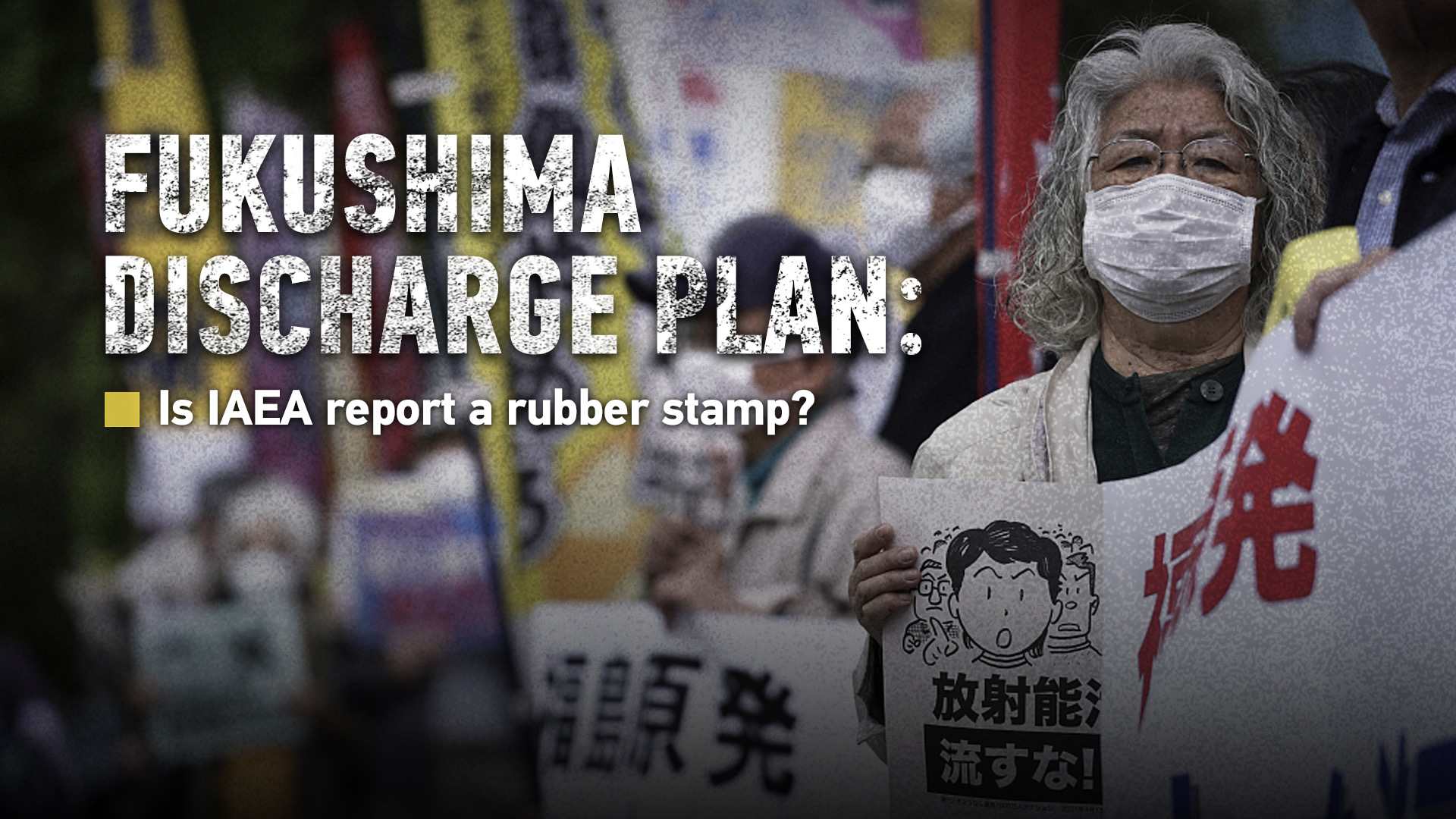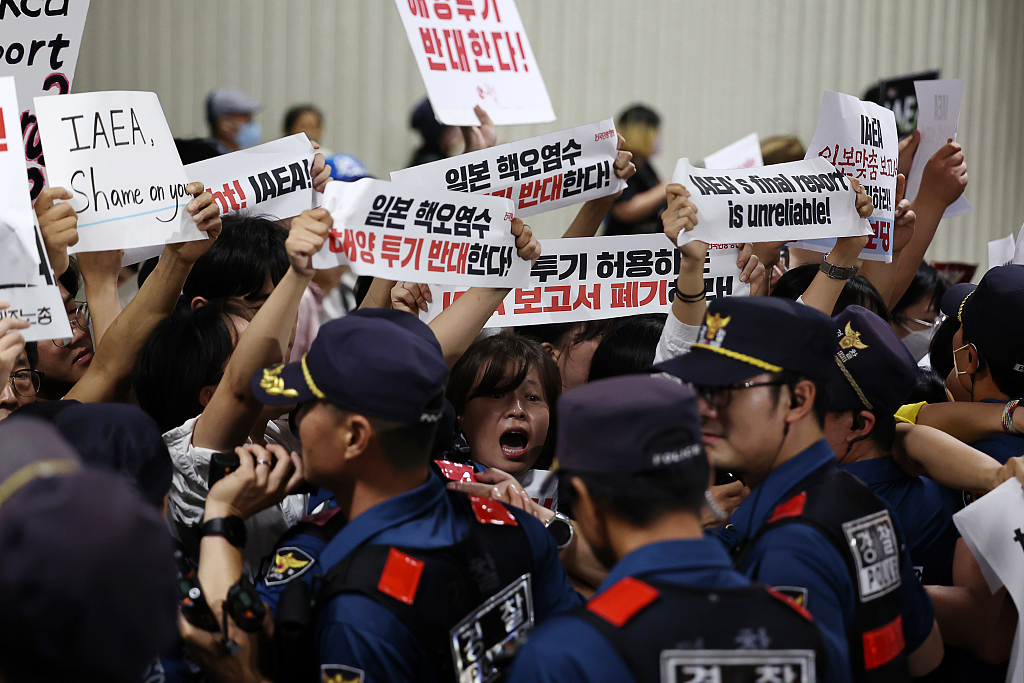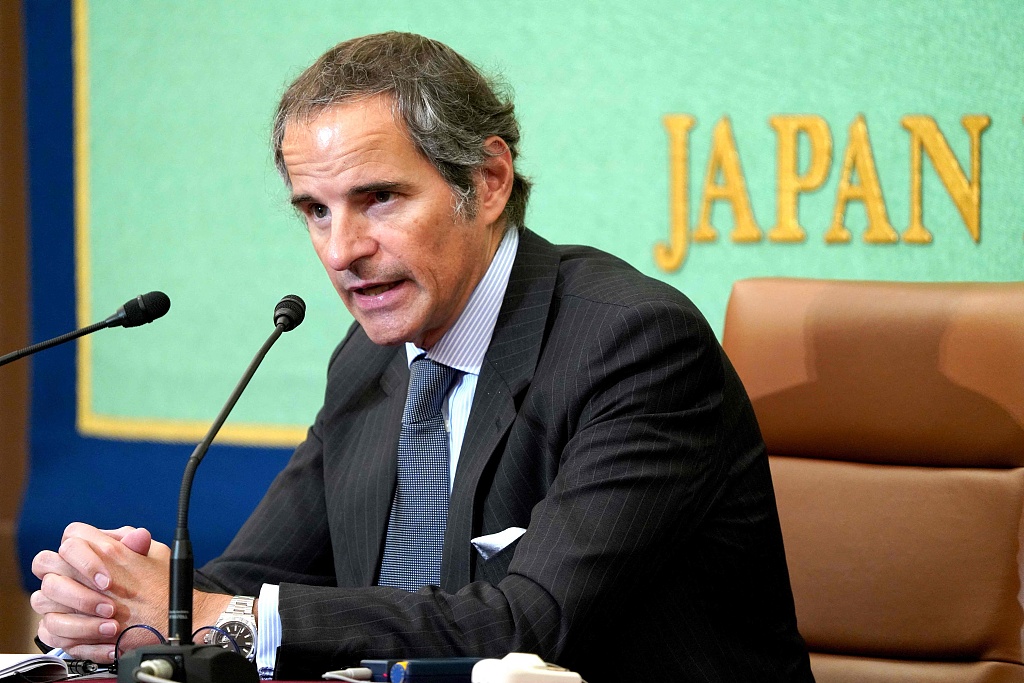
Editor's note: In this three-part series, we aim to shed light on Japan's contentious decision to release treated radioactive water from the tsunami-ravaged Fukushima Daiichi nuclear plant into the ocean. Tokyo has announced that it will proceed with its plan as early as August despite overwhelming concerns among environmentalists, scientists and neighboring countries. In this part of the series, we delve into the validity of an International Atomic Energy Agency (IAEA) report that the Japanese government regards as the greenlight to proceed with its plan.
Japan appears emboldened to press ahead with its plan to release radioactive water from the Fukushima nuclear plant into the ocean after an IAEA report released earlier this week determined that it met international standards.
However, the validity of the report, completed after a two-year review, is disputed by scientists and government officials.
Many have contended that the report had serious limitations in its scope, as it was only allowed to assess a plan already decided by the Japanese government, excluding the examination of other options such as geological injection, steam release, hydrogen release and underground burial.
The narrow remit predetermined the report's framework, requiring an assessment of whether Japan's plan is feasible rather than the most risk-averse option to take. Key questions, like the safest way to dispose of radioactive water and what kind of impact the plan will have on the environment, were ignored, meaning the review could not address many practical concerns.
It was an evaluation conducted "under the assumption of perfect imagination," several members of the Democratic Party of Korea in South Korea said.
Critics have also noted that the report was reliant on data and samples of radioactive water collected through the Tokyo Electric Power Company (TEPCO) – a corporation with an extensive, documented history of corporate misconduct that cast a dark shadow over Japan's nuclear industry.
"What we have learned is that the data presented by TEPCO is based on a limited pool of samples," Zhang Yanqiang, an international law professor and director of the Institute for Yellow Sea and Bohai Studies at Dalian Maritime University, told CGTN.

People hold signs protesting against the IAEA's report as Director General Rafael Grossi arrives in Seoul, South Korea, July 7, 2023. /CFP
People hold signs protesting against the IAEA's report as Director General Rafael Grossi arrives in Seoul, South Korea, July 7, 2023. /CFP
The lack of sampling independence and representativeness in the IAEA's review has led observers to argue that it failed to answer questions such as whether Japan's purification system is effective in the long term, the impact of radioactive nuclides on the ecological environment and public health, and the authenticity and accuracy of the data on the contaminated water.
The IAEA's handling of the report, released under the authority of Director General Rafael Grossi, has also raised questions over whether its conclusion was too hastily reached.
"Although the IAEA Secretariat had sought expert opinions from the technical working group on the draft report before its release, the time window given to the experts was very limited, and their opinions were only for reference," said Liu Senlin, a researcher from the China Institute of Atomic Energy and also a member of the technical working group that participated in the IAEA review.
"After receiving feedback, the IAEA Secretariat did not engage in further discussions or try to reach consensus with the experts and instead hastily released the report," Liu said.
Reinforcing the report's limitations was the IAEA's failure to undertake due diligence on the environmental sample analysis, according to South Korean newspaper The Hankyoreh.
In an interim report published late last year, the IAEA said it would collect and analyze three rounds of samples of the radioactive water in line with its safety review process, but the results of the second and third round of analysis had not yet come out when the final report was released, which experts say violated a universal principle in chemical analysis.

IAEA Director General Rafael Grossi speaks during a press conference at the Japan National Press Club in Tokyo, Japan, July 7, 2023. /CFP
IAEA Director General Rafael Grossi speaks during a press conference at the Japan National Press Club in Tokyo, Japan, July 7, 2023. /CFP
"By releasing a report with only one round of analysis completed, (the IAEA) has proved for itself that the results of its analysis are insignificant," Han Byeong-seop, director of the South Korea-based Nuclear Safety Research Institute, told The Hankyoreh.
These and other observations that point to the IAEA's potential rush to complete its report have led to questions about its integrity. "The entire review process is like a show, corresponding with Japan's schedule on the disposal plan," Zhang said.
He added that the discharge of Fukushima water into the ocean lacks international precedents and should not be approved by the IAEA alone.
"The matter is under the purview of international law, meaning it should be concerning a host of international bodies such as the International Maritime Organization, which has a mandate to address environmental concerns, the World Health Organization, the World Trade Organization and even human rights organizations," Zhang explained.